Leading change
Madonsela calls on Unisa to tell stories of faceless women
“Unisa, you are leading without a title when it comes to putting women at the centre of peace processes across the world. You are a generalist institution, but by choice you have joined UN Women and SAWID in placing women at the centre of conversations around democracy, peace, and development. I think this is very important,” said Advocate Thuli Madonsela, Chief Patron of the Thuli Madonsela Foundation.
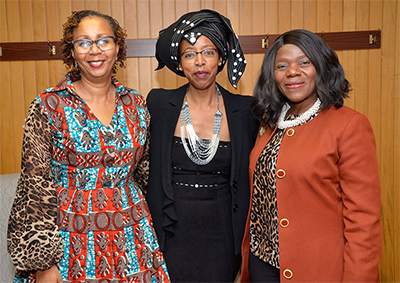
Anne Githuku-Shongwe (Representative: UN Women South Africa Multi-Country Office), Dr Marcia Socikwa (Vice Principal: Operations and Facilities, Unisa), and Adv. Thuli Madonsela (Chief Patron: Thuli Madonsela Foundation)
Madonsela was speaking at the Women’s Month dialogue hosted by Unisa, South African Women in Dialogue (SAWID), and United Nations (UN) Women, which took place on 10 August 2017. This was premised on the theme Reclaiming African women’s dignity as a human right: In memory of the 1956 Women’s March.
Madonsela believes there are many more stories to tell, further than just 1956. “Women didn’t just do 1956 so I hope that Unisa can help document something broader about the role of women, where we were and where we are today. 1956 was one moment, but before 1956, there were others,” she said. Madonsela highlighted Charlotte Maxeke, a South African religious leader, social worker, and political activist as one of the many women who fought the good fight.
“I’m calling on Unisa, and other academics, to tell the stories of those faceless women. Their stories will show that women have led change in South Africa and in the world. When we have these conversations of women being instrumental in change, it’s not something new; it’s something we have in fact done before,” Madonsela pointed out.
So where is leadership needed today for women? According to Madonsela it’s needed in three areas: peace, sustainable development and culture. “We have to look at how we can use sustainable development to create a well-being economy. We also need to reconcile our culture with the constitution. The constitution promises to kill the divides of the past. So let us create a culture that supports that,” she urged.
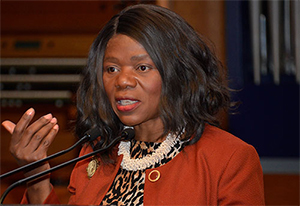
“I’m calling on Unisa, and other academics, to tell the stories of those faceless women. Their stories will show that women have led change in South Africa, and in the world. When we have these conversations of women being instrumental in change, it’s not something new, it’s something we have in fact done before,” Madonsela pointed out.
Madonsela believes that at the moment, we have a beautiful constitution, but our mindset is still that of a divided society. “It’s a case of I see your colour before I see you or I see your gender before I see you.”
What will it take to overcome this? Madonsela believes it starts with self-love. “Well first we need to heal ourselves. We can’t give what we don’t have, so this is why self-love is important. We need to take a journey into ourselves and see what’s lying in there and look at the traumas we have suffered, and look at how we can liberate ourselves from those shackles. If we are prisoners of hate because of what has happened to us in the past, we cannot light a temple in favour of a society that’s united despite colour and past injustices,” she said.
Adding to this dialogue was Anne Githuku-Shongwe, Representative of the UN Women South Africa Multi-Country Office. She looked at some of the conditions that threaten women and human dignity. “We are sometimes, as men and women, united in the promotion of patriarchy. Also, the macro economy is not designed for gender equality,” she pointed out.
She also shared staggering and frightening statistics influenced by globalization. “Globalisation has established new threats to women, women’s bodies, to women’s economy and to women’s survival. Today violence and conflict across the world accounts for over 40 trillion dollars. In South Africa we have anywhere from 30 000 to 100 000 women that are trafficked from this country.”
The objectives of the Unisa, SAWID, UN Women, Women’s Month dialogue is to, amongst others, explore the conditions that threaten women’s and human dignity in the country, showcase South African women’s perspectives towards the solving of human development challenges, to discuss evidence-based models to embed human dignity, peace and development at family level, and to highlight the role of education as a key driver of dignity, self-worth, poverty eradication and family empowerment.
*By Kirosha Naicker
Publish date: 2017-08-11 00:00:00.0


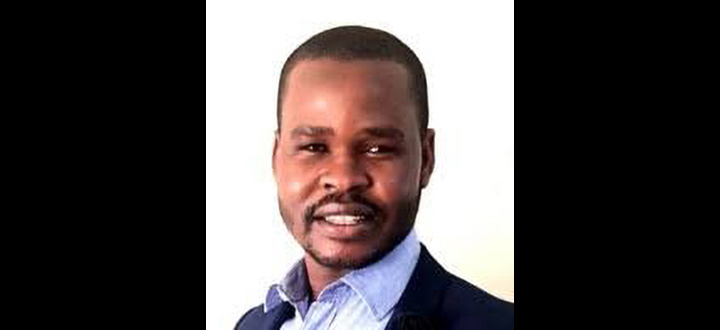 Mental health among men in the workplace needs more attention
Mental health among men in the workplace needs more attention
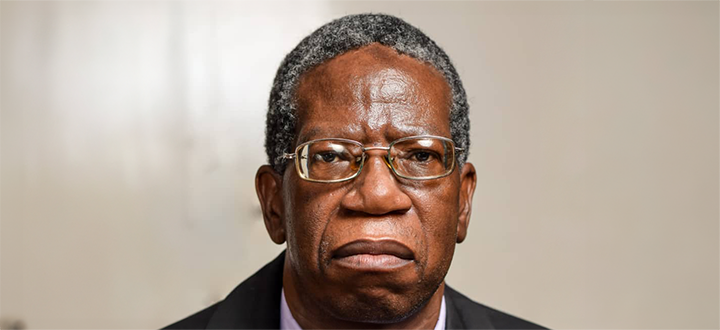 "I owe everything to Unisa and my late supervisor's priceless mentoring"
"I owe everything to Unisa and my late supervisor's priceless mentoring"
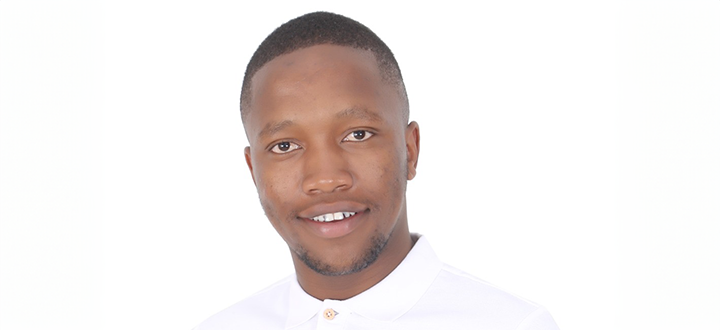 Majikijela - a queer scholar raising homosexuality awareness through his work
Majikijela - a queer scholar raising homosexuality awareness through his work
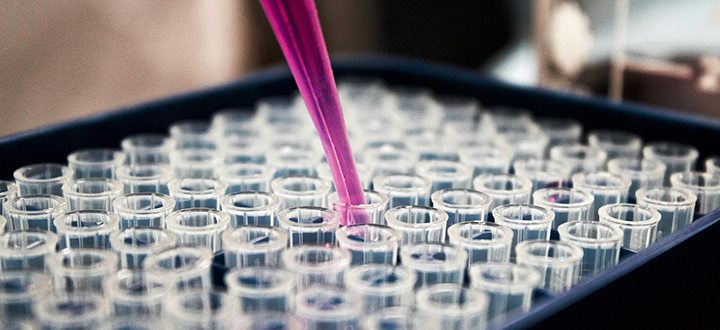 Unisa and Inqaba Biotec unveil groundbreaking DNA research platform
Unisa and Inqaba Biotec unveil groundbreaking DNA research platform
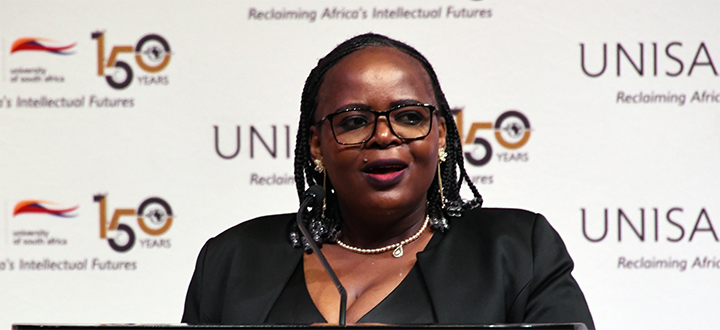 College of Law appoints esteemed scholar as executive dean
College of Law appoints esteemed scholar as executive dean